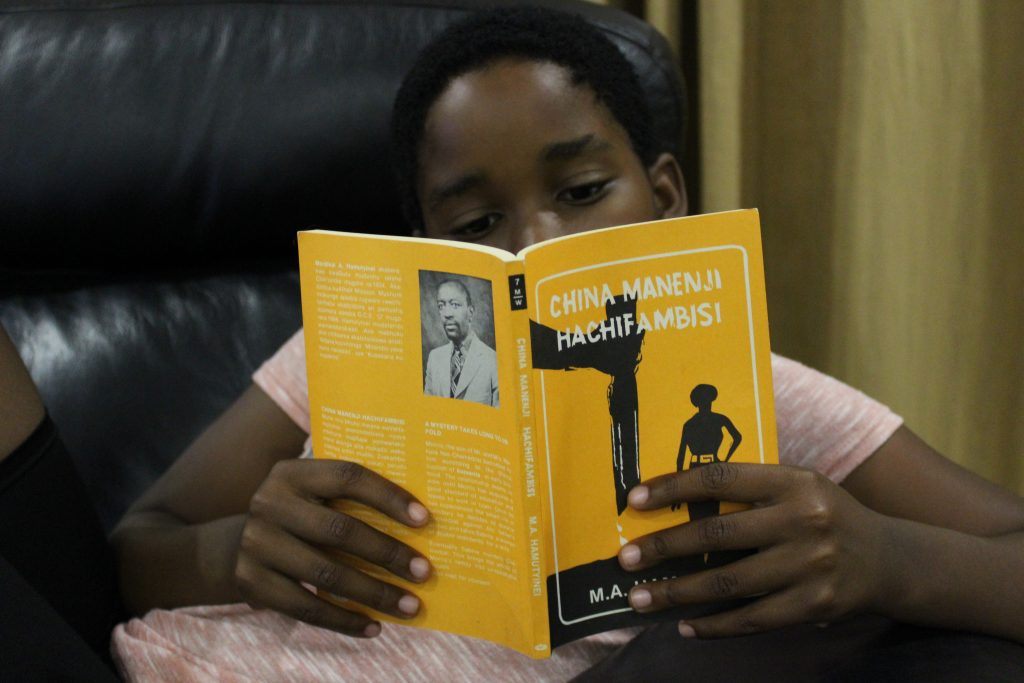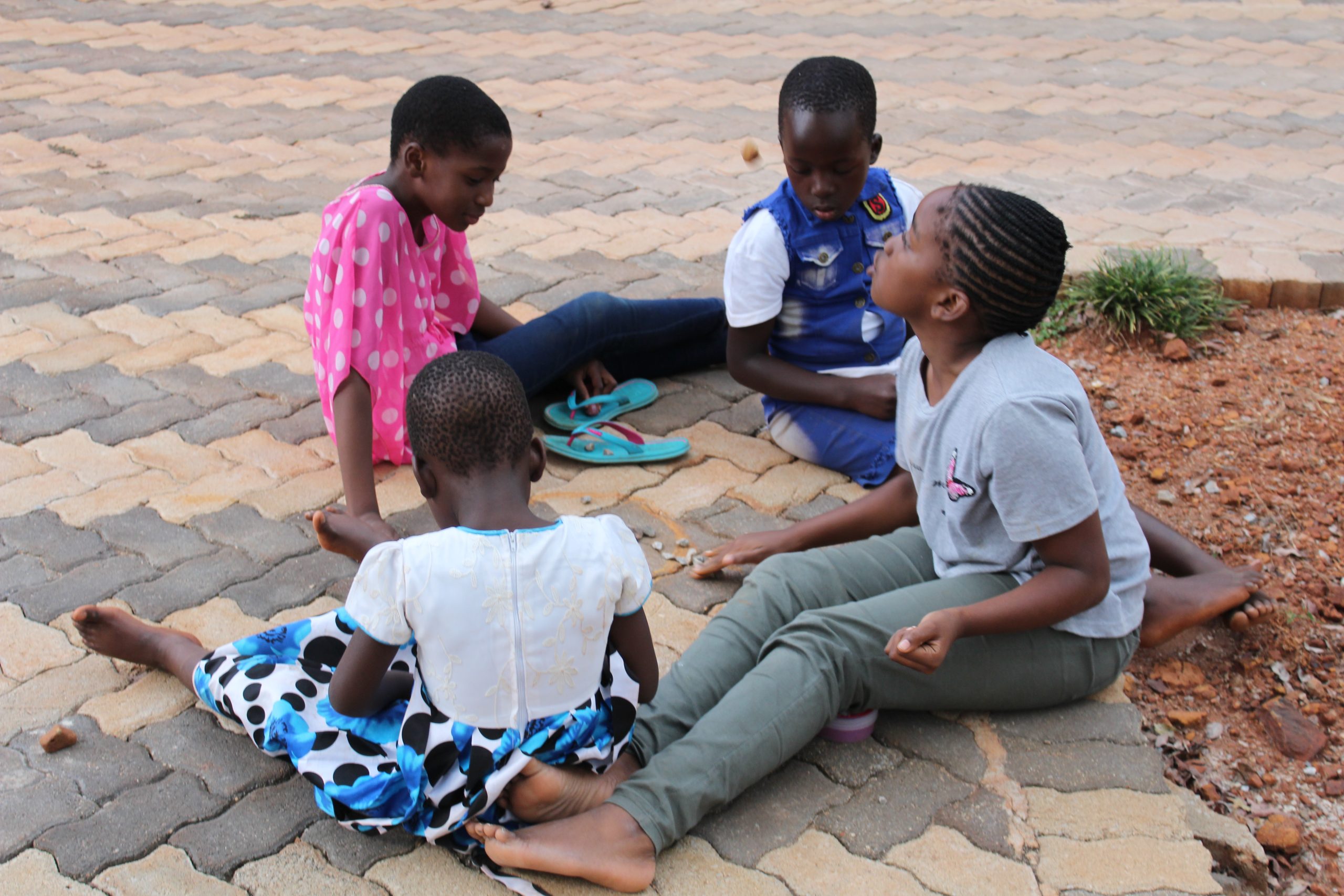I have seen corporate advertisements with glaring irregularities, following a poor attempt by salesmen and marketers to communicate in the Shona language. In almost similar circumstances, most of my attempts to read through paragraphs of Shona text haven’t been exactly a smooth sail.
The scenarios of the marketer and myself are a manifestation of the struggle children have with Shona language learning. As a culture and heritage writer, I do lots of research for my blog articles, and this has exposed me to some very interesting and often overlooked realities. Thanks to this, I am now better able to deal with the guilt I have always harboured, regarding my inadequacies as a native Shona language speaker.
The 5 factors below do not make Shona language learning any easier for children.
1. Different dialects result in word usage differences
In a post titled, ‘Still trying to figure out why they just won’t speak Shona? Well, picture this,’ I discussed the different Shona language dialects. The Shona we have today is mainly Zezuru-based, with significant influence from the Karanga dialect, and a limited influence from Manyika, Ndau and, Korekore dialects. Kalanga is considered a separate language altogether.
There are a number of word synonyms and variants from the different dialects and the respective sub-dialects. Also some words, for example, those from the Korekore dialect, are little known. For instance, there are various words for ‘baboon’; bveni, dede, diro, gudo and mutiro. Another example that comes to mind is the different, and probably little known words for ‘butterfly,’ which words are also used for ‘moth.’ These are furafura or betepesu in Manyika, bembenene or nharira in Karanga, and shaveshave in Zezuru.

Adding to the vocabulary headache is the issue of different forms of the same word. For instance, nzara, zhara for ‘path’; betepesu, betepeswa for ‘moth’; dzvara, dyara for ‘sow’; and tarira, tarisa for ‘look at.’
There is also the case of different meanings for the same word form. Examples are mbiri, ‘two’ and ‘glory’; fara, ‘be happy’ and ‘be broad’; and gore, ‘year’ and ‘cloud.’
2. Accent, tone and pitch may vary
Some language teachers will tell you that it is best to learn a language by listening and speaking, before reading and writing. Looking at the written text first might lead one to try read or ‘hear’ the word in a manner they are already familiar with. That, however, could actually lead to confusion as a result of distortion. I can almost relate that to my own experiences with reading new Shona words and then struggling with tone patterns.
Some words look simple on paper, then turn out to be intimidating when one tries reading them out loud. This could be the case with words that have similar spellings yet are pronounced differently.
Let us take a few examples. The word mbiri has different pronunciations for ‘glory’ and ‘two.’ Another example is chera when used for ‘dig’ versus when it is used for ‘draw water.’ Another interesting aspect of variation is when a word could be a sentence. Take for instance the word musoro to mean ‘head’ or ‘it is a head.’
There is no ‘l’ in Shona, at least that is what is taught in schools. However, some dialects have words that contain the ‘l’ sound. For example the word for ‘eating,’ kudya, is pronounced kudhla by the Karanga.
Some language teachers will also tell you that a native speaker is not the best person to teach the language, as it might not be easy for them to appreciate the difficulties a learner might encounter. I guess it is such aspects as the variations in tone and pitch which could easily be taken for granted.
3. The imagery of some of the most cherished parts of Shona oral literature is out-dated

Almost any parent of a child studying Shona in school has at some point struggled with homework. This normally relates to proverbs or finding words that fit certain descriptions. It seems all the stakeholders involved – the teacher, the student and the parent, struggle in this regard.
From this, however, I have realised that the problem is mostly due to outdated literature and vocabulary. Most of it originated in a social context that is alien to children today. In some instances, the practices are long dead, while in others the practices or concepts are unknown to a child being raised in an urban setting.
Over the past few months, I have analysed common Shona proverbs (tsumo) and learned so much about traditions and how the Shona lived in olden days. (These are available on facebook and twitter). Without that context, it is very difficult to imagine the meanings of proverbs inspired by ancient traditions and lifestyles. In a post titled, ‘Meanings of the Shona names of months| A glimpse into Zimbabwean life in traditional society,‘ as I explored the meanings of names of months, I really understood the relevance of understanding the social context that informs language.
Even though the imagery might be considered out-dated, it also goes to show that one needs to understand a culture so that they understand its language.
There has always been a focus on traditional proverbs, and I have heard others question why the changing social context has not resulted in formalisation and encouragement of modern proverbs.
4. Shona grammar is complicated
There is no shortage of examples to demonstrate the challenges when it comes to grammar. ‘VaMutema’ (Mr Mutema) is written incorrectly by some as ‘vaMutema.’ Then there is the case of different sounds that get confused when writing, “m” and “mh”, then “n” and “nh”.
Shona word division is also a common nightmare, with even official documents and corporate advertisements being poorly written. This may be attributed to perhaps too many rules which are difficult to memorise.
In Shona word division, if it does not mean something by itself, then it cannot be presented as a separate word. This rule is not as simple as it sounds. Identifying what does and doesn’t make sense when spoken by itself isn’t as easy as it is supposed to be. From my experience, the rules are rather overwhelming; more of a science, really.
5. Word equivalents in Shona – English translation are sometimes difficult to arrive at
Sometimes English seems more expressive than Shona. For example, when one fails to find an equivalent Shona word, they might end up going through an exhausting process of coining a suitable explanation.
The picture below is literally a display of one area fraught with translation challenges – medical terminology. A friend once told me how she often struggled to express or explain things to her son’s Ghanaian pediatrician. In a post titled, ‘6 things worth knowing about traditional practices when faced with a disease outbreak,’ I spoke about potential language challenges when educating the public about disease outbreaks.
I guess it becomes clear that the lack of Shona terminology is a real challenge when dealing with specialist subject areas.

I’m sure the arguments above do paint a pretty good picture of what children struggling with Shona language learning have to deal with. So judge them or forgive them, the struggle is real!
Other references:
- Mheta, G. (May 2011), A contextual analysis of compound nouns in Shona Lexicography
- Nyota S. (2007), The impact of lexicographical work on language use: The case of Shona monolingual dictionaries in Zimbabwe
- Allex Project, (2005), A photographic reprint of Doke’s Report on the unification of Shona dialects


Thank you so much for this info. I so relate to the struggle kids have in learning Shona especially as a second language. I often encounter this with my students learning Shona as a second language. When in comes to grammar, there are just to many rules that are difficult to comprehend. I think as writers and teachers in this era we can do something about our literature.
Thank you Melody for the feedback. It’s interesting to hear from someone who works firsthand with Shona language learners. I imagine you also face challenges when it comes to sourcing effective teaching resources. So just as you pointed out, this should challenge writers and teachers to do more.
I’m in disagreement with this article. Language preserves a culture, it’s very important to keep the experiences and words of our ancestors to know where we came from. Dialects and differences in grammar are in every language.
“Urban” children are also a minority in Zimbabwe so it comes down to motivation and how the language is marketed at home and in schools
Thank you for the feedback Kundai. You, are right that language preserves a culture. One of the reasons I started writing this blog was to do my part in that regard.
In this article I merely point out some of the challenges faced by Shona language learners, which in no way means I am advocating that the language should not be preserved. I could write the same about any other language, as these issues are certainly not unique to Shona alone.
I also like that you have pointed out issues of motivation and marketing of language (and I very much agree with you!), these am sure could help address the challenges I have discussed. Thank you again.
This is spot on. My daughter’s Shona teacher once said that the difficulty with teaching Shona in an urban setting is that many of the children have absolutely no context. This can range from the complex proverbs and their meanings scenarios or something as simple as ‘choto’. Many urban children may not have seen one let alone used one so the visual is not there. It can be learnt but I think it’s that much harder when the learner has not full context or lived experience.
Even the adults, very few of us can speak a full sentence of fluent, pure Shona; our vocabulary is very limited and littered with ‘borrowed’ words from English and other languages.
Thank you Olga.
I am glad you spoke from the perspective of a parent, also highlighting what an educator has expressed to you.
The limitations around vocabulary are real, with words that we use on a day-to-day basis not being formalised.
Hopefully at some point we will be able to continually define new words, such as Merriam Webster did in March 2020. Due to Covid-19, they added new words to the Dictionary.
Ndinokutendai zvikuru nebasa ranaita iri. Ini ndiko kutanga kusangana nezvinyorwa zvakanaka kudai, zvinoisa fungwa mukuongorora ChiShona panosvika mbizhanhare kudai. Ndicharamba ndichiverenga. Musaneta henyu.
Ndinotenda zvikuru nekurudziro yenyu. Aiwa ndicharamba ndichinyora, ndichitarisirawo kukurudzira hurukuro pakati pevanhu vechitema, pamusoro petsika nemagariro zvechivanhu.
Ko chii chinoita kuti murairidzi asafarire Chishona
Wakadii Moreblessing,
Ndinotenda nekuuya kwako pano uchiverenga zvinyorwa zvangu.
Maererano nenyaya yawabvunza, ndinoona sekuti vamwe varairidzi vakatokanda mapfumo pasi pamusaka pekushaya hanya nemutauro wedu kunoita vamwe vabereki.
Ndinotenda zvakare.
Makadii munyori
Chimwe chinogozhera vana paShona inhinhau yeDialect. Zvikoro zvinodzidzisa Zezuru iye kumba achitaura chiNdau, chiManyika etc. Ave kuita seodzidza rumwe rudzi rutsva zvisinei arimudhorobha kana kumusha. Muenzaniso sekuti gwanza, kuremba, kurumba, bambomukuru(baba vababa) aosvika kuchikoro achidzidzinurwa.
Ndinotenda nemashoko enyu Mrs Madondo,
Ndinowirirana nenyaya yamareva yedambudziko rinobva panyaya yekusiyana kwemapazi emutauro weChiShona. Muzvikoro munofundiswa yatingati Standard Shona, iyo yakanyanyoremera kubazi reZezuru.
Ndinoona sekuti pane zvizhinji zvatingakwanise kuita kukurudzira kufundiswa kwemamwe mapazi emutauro weChiShona, pamwechetewo nedzimwe ndimi dzemuno muZimbabwe.
Nekufamba kwenguva ndichaedzawo, nepese pandinogona, kutora matano ekubatsira padambudziko iri.
Ndinotenda zvikuru.
Shungu